Introduction
Starting your own property management business can be a lucrative and rewarding venture, especially in a growing real estate market. Whether you want to manage residential or commercial properties, the demand for skilled property managers is high. However, setting up and running a successful company requires careful planning, compliance with legal requirements, and a strategic approach. If you’re looking to Start Your Own Property Management Business, understanding industry best practices and utilizing the right tools will be key to long-term success. Implementing the right property management software can help streamline operations, improve tenant management, and enhance overall efficiency.
This guide will walk you through the essential steps to starting your own property management business, from creating a business plan to finding clients and scaling your operations. You’ll learn how to navigate legal requirements, build a strong reputation, and implement effective management strategies. With the right approach and tools, you can establish a successful and profitable property management business.
Understanding the Property Management Industry
Property management involves overseeing residential, commercial, or industrial real estate on behalf of property owners. This includes marketing vacancies, screening tenants, collecting rent, handling maintenance, and ensuring legal compliance. The industry is highly competitive, and success depends on excellent customer service, organization, and knowledge of real estate laws. If you’re looking to Start Your Own Property Management Business, mastering these key responsibilities and leveraging the right tools can set you apart in the market.
Why Start a Property Management Business?
There are several compelling reasons to enter the property management industry: It offers steady income potential, flexibility, and the opportunity to build long-term wealth through real estate management.
- Growing Demand – With the rise of rental properties, landlords need professionals to manage their assets.
- Recurring Revenue – Management fees provide a steady income stream.
- Scalability – You can start small and expand by acquiring more clients.
- Flexibility – Work at your own pace and set your terms.
Creating a Business Plan
A well-structured business plan is essential to secure financing and establish a clear roadmap. It should include your business goals, target market analysis, and strategies for growth and profitability.
- Executive Summary – An overview of your business goals.
- Market Analysis – Research local demand for property management services.
- Business Model – Define your pricing strategy and services.
- Financial Plan – Include startup costs, revenue projections, and break-even analysis.
Legal Requirements for a Property Management Business
Business Structure
Choose the right legal structure for your business: This decision will impact your taxes, liability, and overall operations, so it’s important to research and select the best option for your needs.
- Sole Proprietorship – Simplest form but offers no personal liability protection.
- Limited Liability Company (LLC) – Offers liability protection and tax flexibility.
- Corporation – Best for larger businesses with multiple partners.
Licensing and Permits
Depending on your location, you may need: specific licenses, permits, or certifications to operate legally and comply with local real estate regulations.
- A real estate broker’s license.
- A property management certification.
- Business registration and tax ID.
Setting Up Your Office and Operations
Office Space and Equipment
You can start from a home office or lease a professional space. Essential equipment includes a reliable computer, property management software, and a dedicated phone line for client communications.
- A computer with property management software.
- A business phone and email.
- Legal templates for leases and agreements.
Software and Tools
Invest in property management software like: industry-leading platforms that help streamline rent collection, maintenance requests, and tenant communication, improving overall efficiency.
- Buildium – All-in-one property management.
- AppFolio – Best for large portfolios.
- TenantCloud – Budget-friendly for small businesses.
Defining Your Services
Essential Property Management Services
- Tenant Screening – Conduct background checks and credit reports.
- Rent Collection – Set up online payment portals.
- Property Maintenance – Coordinate repairs and upkeep.
- Legal Compliance – Ensure leases and evictions follow legal procedures.
Additional Revenue Streams
- Short-Term Rental Management – Manage Airbnb properties.
- Property Marketing – Offer professional listing services.
- Tenant Placement Only – Charge fees for finding tenants.
Marketing Your Property Management Business
Building an Online Presence
Create a professional website showcasing your services, testimonials, and contact information. A well-designed site enhances credibility and helps attract potential clients searching for property management solutions.
Social Media and Advertising
- Facebook & Instagram Ads – Target landlords and real estate investors.
- Google My Business – Optimise for local searches.
- Networking – Join real estate investment groups and landlord associations.
Referral Program
Encourage existing clients to refer landlords in exchange for a discount or commission. Building a strong referral network can significantly boost your client base and establish trust within the industry.
Finding Your First Clients
Targeting Landlords and Investors
Reach out to property owners through direct mail campaigns, cold calls, and networking events. Establishing personal connections and showcasing your expertise can increase your chances of securing long-term clients.
Partnering with Real Estate Agents
Collaborate with realtors to manage properties for their investor clients.
Handling Property Maintenance and Repairs
Develop relationships with reliable contractors for: maintenance, repairs, and renovations to ensure properties are well-maintained and tenant satisfaction remains high.
- Plumbing and electrical work.
- Landscaping and cleaning services.
- Emergency repairs.
Offer 24/7 maintenance support to increase tenant satisfaction.
Managing Finances and Accounting
- Open a Business Bank Account – Keep finances separate from personal funds.
- Use Accounting Software – QuickBooks and FreshBooks help track income and expenses.
- Understand Taxes – Consult a tax advisor for deductions and compliance.
Expanding Your Business
Hiring Staff
As your business grows, consider hiring:
- Administrative assistants.
- Leasing agents.
- Maintenance coordinators.
Scaling Your Portfolio
Expand by managing multi-unit buildings, commercial spaces, or vacation rentals.
Challenges in Property Management and How to Overcome Them
- Late Rent Payments – Use automated reminders and online payment options.
- Difficult Tenants – Set clear lease terms and enforce policies.
- Market Fluctuations – Diversify by managing different property types.
FAQs
What are the initial costs of starting a property management business?
Startup costs vary but typically range from $2,000 to $10,000, covering licensing, office setup, and marketing.
Do I need a license to manage properties?
Most states require a real estate broker’s license or a property management certification.
How do I attract my first clients?
Networking, digital marketing, and partnerships with real estate agents are effective ways to find clients.
What percentage should I charge for property management services?
Most property managers charge 8-12% of the monthly rent, depending on the property type.
How can I handle property maintenance efficiently?
Build a network of trusted contractors and use property management software to track maintenance requests.
Is property management a profitable business?
Yes, with consistent clients and efficient operations, a property management business can generate significant profits.
Conclusion
Starting your own property management business requires dedication, strategic planning, and compliance with legal requirements. With the right business model, marketing strategies, and customer service, you can build a profitable and scalable property management company.




